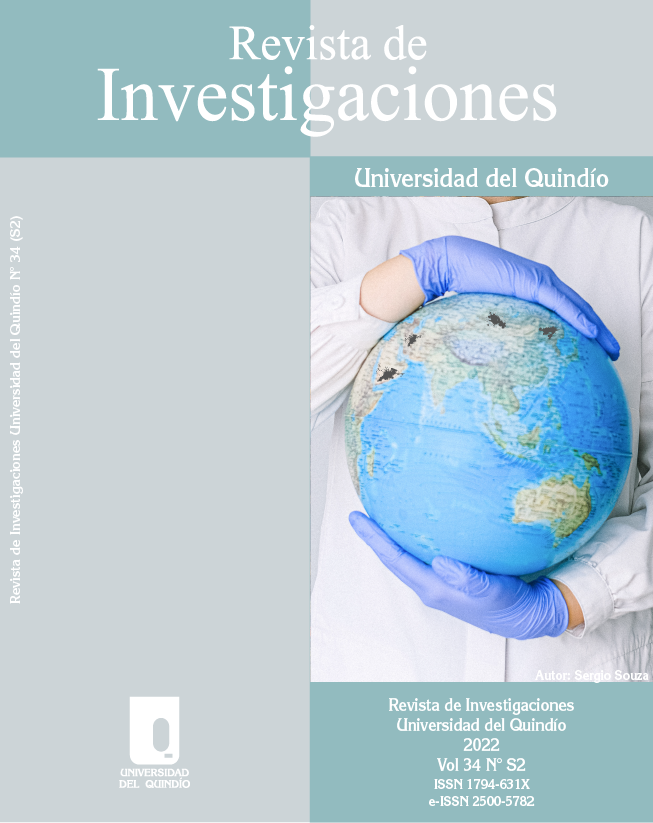Estudio de las características sintácticas de los títulos de los textos publicitarios
DOI:
https://doi.org/10.33975/riuq.vol34nS2.947Palabras clave:
Rasgos sintácticos, encabezamiento, investigación oculográfica, texto publicitarioResumen
Técnicamente, el objetivo principal del texto publicitario es manejar los escenarios de comportamiento y las motivaciones de los consumidores. Por lo tanto, el presente estudio intenta describir los resultados de las observaciones e investigaciones para evaluar la percepción de los títulos y encabezados de varios textos publicitarios. Esta encuesta involucra a doce sujetos, en los que utilizando las gafas Pupil y el software de Pupil (Alemania), los participantes observan seis encabezados diferentes orientados al hemisferio derecho o izquierdo del cerebro. Según los resultados del análisis de los resultados de las observaciones, no se aprobó la posibilidad de aumentar el atractivo de los títulos y encabezados mediante el uso de la sintaxis centrada en la activación preferencial de un hemisferio cerebral. Se llegan a conclusiones sobre la conveniencia de utilizar exclamaciones breves o tipos no asignados de sugerencias promocionales.
Descargas
Citas
Elyas, T., & Al-Zahrani, N. A. (2019). A critical discourse analysis of Saudi Okaz newspaper front-page headlines: A case study. Journal of Arab & Muslim Media Research, 12(1), 3-20.
Fomin, A. G. (2001). Psychological aspects of advertising message. Psychopedagogy in law enforcement, 1, 117-119 (In Russian)
Hughes, J. W., Chang, K. H., & Zhang, R. (2019, July). Generating better search engine text advertisements with deep reinforcement learning. In Proceedings of the 25th ACM SIGKDD International Conference on Knowledge Discovery & Data Mining (pp. 2269-2277).
Kartavenko, M.V., Nikulina, D.S. (2006). Psychological features of the perception of an advertising message. News of TRTU, 14, 220-223 (In Russian)
Kharbach, M. (2020). Understanding the ideological construction of the Gulf crisis in Arab media discourse: A critical discourse analytic study of the headlines of Al Arabiya English and Al Jazeera English. Discourse & Communication, 14(5), 447-465.
Kuranova ,T. P. (2015). Factors affecting the availability of information perception in advertising communication (for example, advertising search engine Yandex). Bulletin of KSU named after ON. Nekrasov, 4,165-171 (In Russian)
Mcquarrie, E., & Mick, D. (1999). Visual Rhetoric in Advertising: Text-Interpretive, Experimental, and Reader-Response Analyses. Journal of consumer research, 26, 37-54
Pospypanova, O. S. (2012). Economic psychology: psychological aspects of consumer behavior. Kaluga: Publishing house of KSU them. K.E. Tsiolkovsky (In Russian)
Radikovna Sakaeva, L., Aidarovich Yahin, M., Vladimirovna Kuznetsova, E., & Venera Latipovna, I. (2019). Functional languages in the context of globalization: The language of advertising. Journal of research in applied linguistics, 10(Proceedings of the 6th International Conference on Applied Linguistics Issues (ALI 2019) July 19-20, 2019, Saint Petersburg, Russia), 725-731.
Radchenko, I.A. (2007). Educational Dictionary of Advertising Terms and Public Relations. Voronezh: VF MGEI (In Russian)
Talalay, T. S. (2011). On the issue of advertising discourse (based on German advertising texts). Vestnik OGU, 11, 94-99 (In Russian)
Tikhanova, K. D. (2013). Linguistic means of creating a comic effect in American and Russian advertising. Linguoculturology, 7, 176-200 (In Russian),
Tiskova, O. V. (2012). To the problem of correlation of functional normativity and communicative effectiveness of advertising messages. Bulletin of KemSU, 4, 174-177 (In Russian)
Shutova, N. M. (2019). The stylistics of the advertising text as a translation task (based on the material of automobile advertising). Bulletin of the Udmur University, 3, 461-470 (In Russian)
Storozhuk, M. Yu. (2009). Syntactic features of advertising texts. Bulletin of the Russian State University. I. Kant, 8, 107-112 (In Russian)
Ukhova, L.V. (2012). Methodology for evaluating the effectiveness of an advertising text. Bulletin of Irkutsk State Linguistic University, 3, 196-206 (In Russian)
Descargas
Publicado
Cómo citar
Número
Sección
Licencia
Derechos de autor 2022 Revista de Investigaciones Universidad del Quindío

Esta obra está bajo una licencia internacional Creative Commons Atribución-NoComercial-SinDerivadas 4.0.


